2010 Toyota Camry Tires & Services
Get Started
Complete Auto Care for Your 2010 Toyota Camry
-
TIRES FOR YOUR 2010 Toyota Camry View Tire Info GET TIRE PRICING
-
REPAIR FOR YOUR 2010 Toyota Camry View Repair Info SCHEDULE REPAIR
-
MAINTENANCE FOR YOUR 2010 Toyota Camry View Maintenance Info SCHEDULE MAINTENANCE
-
OFFERS FOR YOUR 2010 Toyota Camry Limited Time Tire Offers VIEW ALL COUPONS
2010 Toyota Camry Tires
Recommended Tires | Tire Information
2010 Toyota Camry Tires Sizes, Speed Ratings, and Inflation
Not sure about your 2010 Toyota Camry tire size? Use the following chart to find information on tire size, speed rating, and inflation.
| Trim Level | Speed Rating | Inflation in PSI F/R | Tire Size |
|---|---|---|---|
| 2010 Toyota Camry Hybrid* | V | 32 PSI/32 PSI | P215/60R16 |
| 2010 Toyota Camry Hybrid* | V | 32 PSI/32 PSI | P215/60R16 |
| 2010 Toyota Camry LE* | V | 30 PSI/30 PSI | P215/60R16 |
| 2010 Toyota Camry LE* | V | 30 PSI/30 PSI | P215/60R16 |
| 2010 Toyota Camry LE* | V | 34 PSI/34 PSI | P215/60R16 |
| 2010 Toyota Camry LE* | V | 34 PSI/34 PSI | P215/60R16 |
| 2010 Toyota Camry XLE* | V | 30 PSI/30 PSI | P215/60R16 |
| 2010 Toyota Camry XLE* | V | 30 PSI/30 PSI | P215/60R16 |
| 2010 Toyota Camry XLE* | V | 34 PSI/34 PSI | P215/60R16 |
| 2010 Toyota Camry XLE* | V | 34 PSI/34 PSI | P215/60R16 |
| 2010 Toyota Camry Base* | V | 34 PSI/34 PSI | P215/60R16 |
| 2010 Toyota Camry Base* | V | 34 PSI/34 PSI | P215/60R16 |
| 2010 Toyota Camry SE* | V | 32 PSI/32 PSI | P215/55R17 |
| 2010 Toyota Camry SE* | V | 32 PSI/32 PSI | P215/55R17 |
|
2010 Toyota Camry Hybrid* Speed Rating: V Inflation F/R: 32 PSI/32 PSI |
|
2010 Toyota Camry Hybrid* Speed Rating: V Inflation F/R: 32 PSI/32 PSI |
|
2010 Toyota Camry LE* Speed Rating: V Inflation F/R: 30 PSI/30 PSI |
|
2010 Toyota Camry LE* Speed Rating: V Inflation F/R: 30 PSI/30 PSI |
|
2010 Toyota Camry LE* Speed Rating: V Inflation F/R: 34 PSI/34 PSI |
|
2010 Toyota Camry LE* Speed Rating: V Inflation F/R: 34 PSI/34 PSI |
|
2010 Toyota Camry XLE* Speed Rating: V Inflation F/R: 30 PSI/30 PSI |
|
2010 Toyota Camry XLE* Speed Rating: V Inflation F/R: 30 PSI/30 PSI |
|
2010 Toyota Camry XLE* Speed Rating: V Inflation F/R: 34 PSI/34 PSI |
|
2010 Toyota Camry XLE* Speed Rating: V Inflation F/R: 34 PSI/34 PSI |
|
2010 Toyota Camry Base* Speed Rating: V Inflation F/R: 34 PSI/34 PSI |
|
2010 Toyota Camry Base* Speed Rating: V Inflation F/R: 34 PSI/34 PSI |
|
2010 Toyota Camry SE* Speed Rating: V Inflation F/R: 32 PSI/32 PSI |
|
2010 Toyota Camry SE* Speed Rating: V Inflation F/R: 32 PSI/32 PSI |
* Note: these models have different tire sizes depending on vehicle options.
Recommended Tires for Your 2010 Toyota Camry
What tires are best for a 2010 Toyota Camry? Check out the following tire brands and types.
 Blizzak WS90
Blizzak WS90
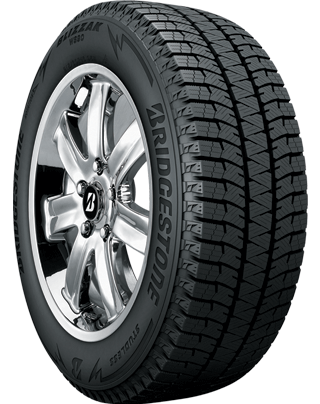
- No warranty
- Winter
- Winter
 Ecopia EP422 Plus
Ecopia EP422 Plus
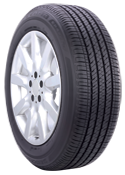
- Platinum Pact Limited Warranty
- All-Season
- Performance
 DriveGuard Plus
DriveGuard Plus
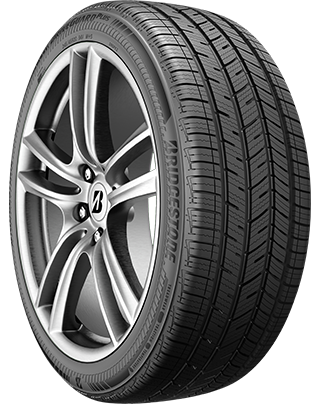
- Platinum Pact Limited Warranty
- All-Season
- Performance
 Turanza QUIETTRACK
Turanza QUIETTRACK
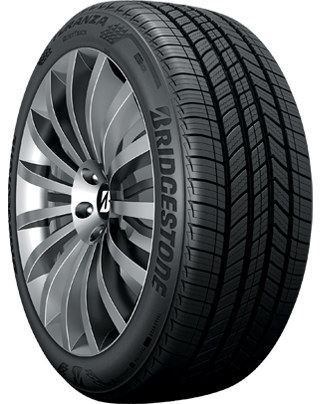
- No warranty
- All-Season
- Performance
 WEATHERPEAK
WEATHERPEAK
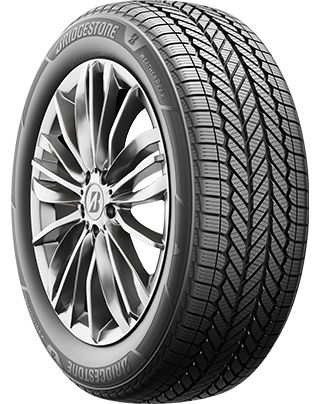
- Platinum Pact Limited Warranty
- All-Season
- Passenger Tires
 Potenza Sport AS
Potenza Sport AS
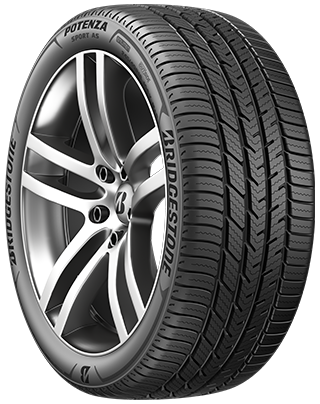
- Platinum Pact Limited Warranty
- All-Season
- Performance
 Turanza LS100
Turanza LS100
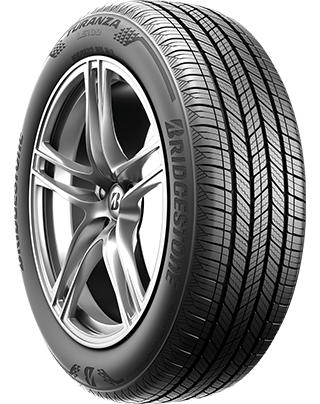
- Platinum Pact Limited Warranty
- All-Season
- Performance
 Turanza T005A
Turanza T005A
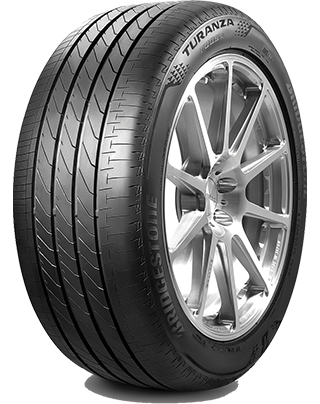
- No warranty
- Summer
- Performance
 ALL SEASON
ALL SEASON

- No warranty
- All-Season
- Passenger Tires
 WEATHERGRIP
WEATHERGRIP
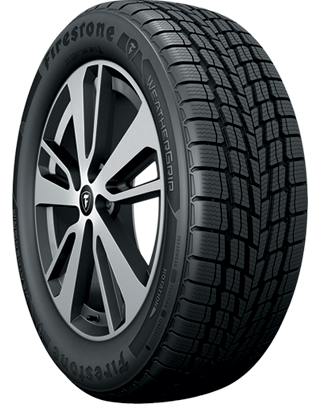
- No warranty
- All-Season
- Passenger Tires
 Winterforce 2
Winterforce 2
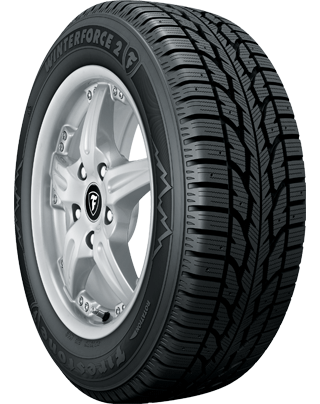
- No warranty
- Winter
- Winter
 Firehawk AS V2
Firehawk AS V2
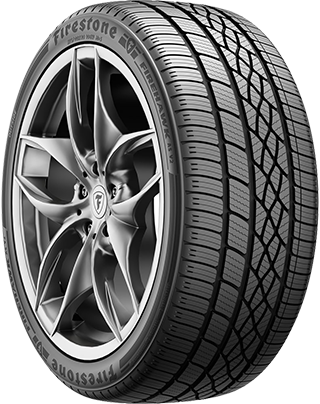
- No warranty
- All-Season
- Performance
 Firehawk Indy 500
Firehawk Indy 500
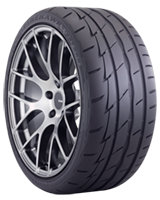
- Gold Pledge Limited Warranty
- Summer
- Performance

- No warranty
- All-Season
- Passenger Tires

- No warranty
- All-Season
- Passenger Tires
 Extensa A/S II
Extensa A/S II

- No warranty
- All-Season
- Passenger Tires
2010 Toyota Camry Tire Information
Other than getting the proper tire size, you also want to consider a handful of other factors when buying new Toyota Camry tires like which tire brands you like most and where you drive. When thinking about your driving conditions, consider where you live (mountains vs. city vs. countryside) and the kind of weather can catch you off-guard. (Watch out Tornado Alley!) It's not uncommon for drivers in states that experience all four seasons to buy more than one set of tires. one set for winter, one set for summer. Other drivers prefer to purchase one all-season set to limit trips to the tire shop and make sure their vehicle is prepared in the rain, sleet, snow, or sun!
Next, consider your driving style. If you're a diehard off-roader, you have very different tire needs than a highway commuter who doesn't leave the paved path. Browse Toyota Camry tires online or come to your nearby Firestone Complete Auto Care for help selecting the tire that's right for you.
Toyota Camry Installation and More
Firestone Complete Auto Care installs more tires on more cars than most other companies. We're your one-stop shop for tire installation, rotation, and ongoing maintenance! Shop 2010 Toyota Camry tires online and schedule an installation appointment.
2010 Toyota Camry Tire Questions
-
Is Toyota tire inflation important? Even a tiny decrease in tire pressure could impact your safety and fuel economy. Maintaining proper tire pressure can help increase fuel economy, improve braking time, and boost tire lifespan.
-
Why are there numbers on the side of my Toyota Camry tires? Your tire sidewall gives you information about load carrying capacity, speed rating, treadwear, traction, and tire size. Talk to one of our tire technicians to learn how to read the numbers on your tire!
-
Is there an easy way to check Toyota tire tread depth? Stay on top of your tire tread depth to help avoid a dangerous drive. You can check tread depth with a penny. Hold the penny so that Abraham Lincoln is facing you, then place your penny into a tread groove upside down. If you can see the top of Abe’s head, your tread is shallow and it might be time for new Toyota Camry tires. Grab a penny. Hold the so that Abe Lincon's head is facing you and his hair is pointing toward the ground. Then, place the penny into a tread groove. If you can see the top of Abe’s head, your tread is shallow and it might be time for new Toyota Camry tires.
Repair Services for Your 2010 Toyota Camry
How do I learn more about auto repairs? Click on a service below to read about the types of Toyota Camry repairs we do at Firestone Complete Auto Care.
2010 Toyota Camry Repair Information
No driver looks forward to car repairs. We’re here to change that, though. At Firestone Complete Auto Care, we want to make car repair painless and hassle-free. Bring your 2010 Toyota Camry in for repair services and our skilled repair technicians will get your Camry back on the road. Before we begin any repair work, we’ll diagnose any issues and answer your questions about potential repair options. If a repair isn't necessary, we won't recommend it.
How Much Does Toyota Camry Repair Cost?
The cost to repair your 2010 Toyota Camry depends on what kind of repair you need, the cost of any replacement parts, the labor involved, and where you live. But regardless of where you’re located, check out our website for repair coupons and offers that could save you some cash.
A few different aspects can influence repair costs for your 2010 Toyota Camry, like
2010 Toyota Camry Auto Repair Q&A
-
Do I still need scheduled maintenance even when nothing is wrong with my Toyota? One of the best ways to prevent 2010 Toyota Camry repairs is by staying on top of your Toyota maintenance schedule. This schedule is written by the people who made your vehicle and they know best how to keep it running smoothly.
-
Should I bring my Toyota in even if I can't pinpoint the problem? No, we’re not talking about finding the best jams on the radio! You know your car best, and you’re the first person who will notice if something doesn’t feel right (like new smells, sights, or sounds coming from your car). If you sense that something is 'off,' stop in for a Courtesy Check to have these symptoms checked out ASAP. Early action could help you prevent Toyota Camry repairs.
-
Do I have to get the repairs you recommend for my Toyota? We won’t recommend a service or repair for your 2010 Toyota Camry unless we think it’s necessary to keep you safe. Want to know more about a specific recommended repair? Ask! We’re here to help.
Brake Repair for Your 2010 Toyota Camry
Your Toyota Camry engine may be strong and reliable. But if you can't stop it, then it's scrap metal. If you’re experiencing squeaky brakes or a loss of braking power, don’t wait! Unresponsive brakes make it tough to give the road your best. Plus, ignoring your brake problems can result in more damage and higher brake repair bills. Get your 2010 Toyota Camry brakes fixed at Firestone Complete Auto Care. We offer a variety of brake services like pad/shoe replacement, brake rotor/drum refinishing, brake fluid exchange, and wheel cylinder and brake caliper installation.
Toyota Camry Brakes Questions
-
What can cause my Camry to shake when I apply the brakes? Your Camry could shake when you brake due to worn brake pads or rotors, warped rotors, loose or worn suspension components, or faulty brake calipers. You can always schedule a free brake inspection at the first sign of strange brake behavior.
-
How long can I expect my Camry brake pads to last? Brake pads generally last between 30,000 and 40,000 miles. Your driving can affect how long your Camry brake pads last, though. For example, mainly driving on highways and gradually braking can help increase the lifespan of your brake pads, and carrying hefty loads or riding your brakes can shorten it.
-
Can brake fluid leak when my Camry is off? Your Camry brake system is a closed hydraulic system, which means that the brake fluid should not leak out of the system under normal circumstances. However, over time, the various components of the brake system can wear out or become damaged, which can cause brake fluid to leak out of the system.
2010 Toyota Camry Drivetrain Repairs
Drivetrains for front, rear, and all-wheel-drive and 4WD vehicles are quite different, so you don't want to go to just anyone for drivetrain repair. You want to go to Firestone Complete Auto Care. We can fix many 2010 Toyota Camry drivetrain components Your Toyota could be crying out for driveshaft repair if you notice resistance when turning, heavy vibrations in your floorboards, clunks when shifting, or vibration as your vehicle accelerates.
Questions About 2010 Toyota Camry
-
How do I know if my Toyota drivetrain is damaged? Noises toward the back of your Toyota Camry, leaking fluid, trouble turning — these could all be signs of drivetrain damage you want to address. Take action before something more severe happens.
-
Why is my Camry malfunction indicator light (MIL) on? A multitude of problems can activate your Camry’s malfunction indicator light (better known as the check engine light), including issues with the engine, transmission, sensors, electrical system, or connectors.
-
How concerning is a drivetrain malfunction in my Camry? Don't ignore a drivetrain malfunction in your Camry. As soon as you notice a problem, have it checked by a professional mechanic to diagnose the issue and carry out any necessary repairs. Driving with a faulty drivetrain is risky and may further damage your Camry.
2010 Toyota Camry Alignment Services
Alignment services involve precise adjustments to your Toyota Camry’s suspension system, which connects the wheels with the rest of the vehicle. In an alignment service, calculated changes are made to the angles of your tires. This is so that your tires hit the road at an optimal angle for your vehicle’s performance — just as Toyota intended. Bring your 2010 Toyota Camry in for a wheel alignment and we'll start with an alignment check. After that, we can adjust your wheel alignment angles until they match Toyota’s recommended measurements.
Toyota Camry Alignment Questions
-
What can knock my Toyota Camry out of alignment? When it’s safe to do so, avoid driving over potholes or hitting curbs. These road obstacles can wreak havoc on your wheel alignment, as can wear and tear from rough road conditions.
-
How often does your Camry need a wheel alignment? It’s usually suggested you check your alignment about every 6,000 miles or 6 months (whichever occurs first). Still, you should reference your Camry owner’s manual for Toyota's recommended interval.
-
Do you need an alignment with new Camry tires? While you don’t necessarily need to get an alignment when putting new tires on your Camry, it’s still a good idea. Ensuring your wheels are properly aligned can help support optimal handling, tire wear, and fuel efficiency.
2010 Toyota Camry Engine Repair
When your Toyota Camry engine needs repairs, our expert techs will let you know what needs to be done and why before they get started. We don't start working until we have your approval. If a repair isn’t urgent right now, we’ll let you know. We'll also tell you if it's necessary for your safety. We seek to give you all the info you need to make a smart decision about our services. By choosing Firestone Complete Auto Care for Camry engine repairs and you can feel good knowing that we only use Toyota-compliant replacement parts such as the cambelt, motor oil seal, fuses, or another part.
Engine Q&A 2010 Toyota Camry
-
Why does the check engine light in my Camry turn on when I start my car? Generally, your check engine light turning on upon ignition is not a bad thing. It’s just your Camry firing up its circuits. The light should turn off in a bit, but come see us if it doesn't.
-
Why does my Toyota engine sound different? Strange under-the-hood noises can point to problems within your Toyota Camry engine. Tapping or knocking could mean you need an oil change. Whistling sounds could mean you have an intake leak or misaligned belt. Squealing may be caused by a loose fan belt, and grinding could be a sign that something is wrong with your brakes — not the engine.
-
What could damage a Toyota engine? Certain driving habits can hurt your engine. These habits include driving on an empty fuel tank, revving your engine while the vehicle is in Park, or slamming the gas pedal while the engine is still cold. Steer clear of these habits to help protect engine performance and efficiency.
Tire Repair for Your 2010 Toyota Camry
If the road has been rough on your 2010 Toyota Camry tires, Firestone Complete Auto Care can help. Our tire technicians can determine whether it's safe to plug and patch the tire, or whether it needs to be replaced. We'll start by evaluating the state of wear, the location of damage, type of damage, and the size of the damage.
If a repair on your 2010 Toyota Camry tire is feasible and safe, the repair process is actually fairly simple: (1) Remove the tire from the wheel for inspection and repair, (2) fill in the area that’s been punctured to prevent damage from moisture, and (3) re-seal the inside lining of your tire so that air won’t escape.
Frequently Asked Toyota Camry Tire Repair Questions
-
Can I drive my Toyota on a flat tire? Driving on a flat or underinflated tire can put extra stress on your wheels and alignment. While it’s sometimes necessary to drive a short distance on a flat tire to get to a safe place, don’t take any other trips in your Camry until you can have the flat tire repaired or replaced.
-
Can I use an emergency/temporary sealant to fix my Toyota's flat tire? Fast fixes are a mixed blessing. They’ll help you get your Toyota Camry to Firestone Complete Auto Care, but don’t count on them to keep you on the road for very long. Using a temporary sealant may also void a Bridgestone or Firestone tire warranty.
-
What can cause Camry tires to keep losing air? Tire punctures, damaged wheels, and leaking valve stems are possible reasons for your Camry tires continuously losing air.
2010 Toyota Camry Maintenance
Take care of your Toyota Camry and it'll take care of you. With the right maintenance at the right time, your Camry has a good chance of hitting 200,000 miles or more.
2010 Toyota Camry Maintenance Schedule
What is the manufacturer recommended maintenance schedule for a 2010 Toyota Camry? Find maintenance info for your vehicle.
2010 Toyota Camry Maintenance Information
It can be overwhelming, but fortunately, there’s a resource that takes the guesswork out of routine Camry maintenance. It’s as easy as following the recommended maintenance schedule that’s been written specifically for your 2010 Toyota Camry! The recommended maintenance schedule is put together by Toyota, your vehicle manufacturer. Scheduled maintenance services can vary depending on driving conditions, climate, and other factors; however, recommended maintenance usually includes services like tire rotations, vital fluid checks/exchanges, filter changes, brake pad replacement, and oil changes. Staying on track with routine service appointments can help your Camry perform better, decrease your risk of dangerous malfunctions on the road, and prevent common 2010 Toyota Camry problems.
Overview of Essential Toyota Camry Maintenance Needs
Come to Firestone Complete Auto Care for manufacturer-recommended routine maintenance on your 2010 Toyota Camry and a skilled technician will start the appointment with a Courtesy Check. The Courtesy Check helps us see what we’re working with under the hood, and allows us to alert you to any potential problems before they worsen. Each Courtesy Check includes a free battery test and an inspection of your Camry's windshield wiper blades, head and tail lights, filters, fluid levels, tires, and alignment.
Firestone Complete Auto Care is your one-stop shop for 2010 Toyota Camry maintenance and repairs. Don’t wait until something goes wrong with your car. Visit your nearest location for proactive maintenance today.
2010 Toyota Camry Maintenance Q&A
-
When should I have Toyota Camry alignment checked? You know your Toyota Camry better than anyone else, so you’ll know if something doesn’t feel right while driving. Have your alignment checked (and adjusted if necessary) as soon as you notice a pulling steering wheel to prevent suspension damage or uneven tire wear.
-
When should I switch my Toyota Camry to high mileage oil? Do you have more than 75,000 miles on your Toyota Camry? If so, request to switch to high mileage oil at your next oil change. This type of oil is specially formulated to keep aging engine parts in the best possible condition.
-
Can I ignore dashboard lights on my Toyota? Don't ignore dashboard warning lights! Bring your Toyota Camry in for a diagnostic code scan as soon as a dashboard warning light flashes on, whether it's your check engine or battery light. Dashboard lights alert you to trouble under the hood.
2010 Toyota Camry Battery Replacement & Size
Researching battery replacements for your Toyota Camry?
| Battery | Engine | Warranty | Cold Cranking Amps | |
|---|---|---|---|---|
| 24F-3 | L4/2.5L | Replacement 24 months | Performance months | 650 |
| 24F-3 | L4/2.5L | Replacement 24 months | Performance months | 650 |
| 35-2 | L4/2.5L | Replacement 36 months | Performance months | 640 |
| 35-2 | L4/2.5L | Replacement 36 months | Performance months | 640 |
| 24F-RP | L4/2.5L | Replacement 48 months | Performance months | 750 |
| 24F-RP | L4/2.5L | Replacement 48 months | Performance months | 750 |
| 24F-3 | V6/3.5L | Replacement 24 months | Performance months | 650 |
| 24F-3 | V6/3.5L | Replacement 24 months | Performance months | 650 |
| 24F-6 | V6/3.5L | Replacement 36 months | Performance months | 750 |
| 24F-6 | V6/3.5L | Replacement 36 months | Performance months | 750 |
| 24F-RP | V6/3.5L | Replacement 48 months | Performance months | 750 |
| 24F-RP | V6/3.5L | Replacement 48 months | Performance months | 750 |
Car Batteries for 2010 Toyota Camry
Generally, car batteries last from three to five years. You want to replace your 2010 Toyota Camry battery before it fails and leaves you stranded. Look out for symptoms of a faulty car battery. A sluggish engine start, an illuminated check engine light or battery signal, bloated battery case, corroded battery posts, or faded headlights may all indicate that your battery needs attention.
Plus, at Firestone Complete Auto Care, we’ll test your battery for free. Visit us for a complimentary battery check and, if necessary, a battery replacement to help keep your 2010 Toyota Camry running! Car batteries are one of our many specialties! Our expert technicians understand Toyota service recommendations for Camry battery cold cranking amps and reserve capacity. Get help identifying the type and size of battery that fits your car perfectly, and schedule a weekday or weekend battery replacement service for your car.
Answers to Your Toyota Camry Car Battery Questions
-
Why doesn’t my Toyota Camry battery stay charged? A battery is in its final hour when it will no longer hold a charge. The battery may be too old. Or, you may have been leaving your car doors ajar and the cabin light at night. Stop by for a complimentary battery check at your favorite Firestone Complete Auto Care and get a handle on your car battery’s health.
-
How long can I expect my car battery to last? A car battery normally lasts three to five years, but this number can vary based on battery type, your driving habits, and battery maintenance.
-
Why is there white, crusty buildup on my Camry’s battery post? If you notice white, crusty stuff around the battery terminals of your Camry, it's likely corrosion. A chemical reaction between battery acid and the air can create a white, powdery substance that builds up over time on the terminals. This buildup can interfere with the electrical connection between the battery and your Camry’s electrical system, potentially leading to poor performance, difficulty starting, and other issues.
2010 Toyota Camry Oil Changes
Toyota recommends changing your 2010 Camry’s oil at regular intervals. No matter the mileage, your Camry may need its oil changed ASAP if your check engine light is on, you hear engine knocking, smell oil inside the car, or see an excess amount of vehicle exhaust. You may also need an oil change more frequently than Toyota recommends if you haul heavy loads, drive in dusty areas, enjoy off-roading, or go long distances at low speeds.
Whether you need high mileage oil, synthetic oil, or conventional oil, you'll find the right 2010 Toyota Camry motor oil at Firestone Complete Auto Care. Consult Toyota's recommendations to select the right 2010 Camry oil and talk with a teammate to learn more about our oil options: Quaker State® Advanced Durability™ conventional oil, Pennzoil® High Mileage Vehicle® motor oil, Pennzoil Platinum® Full Synthetic motor oil with PurePlus™ Technology, and Shell Rotella® heavy-duty engine oil. During an oil change, one of our techs will change your Camry’s oil, replace and recycle the old oil and filter, inspect all of your other filters, refill vital car fluids, and visually inspect the rest of the vehicle. Get professional engine care by making an oil change appointment for your Camry today.
2010 Toyota Camry Oil Change Q&A
-
Why is the oil light on in my Toyota Camry? Your Toyota Camry oil change reminder light might illuminate if it’s been too long since your last oil change. On the other hand, the oil pressure light might illuminate due to a clogged oil filter, a faulty oil pressure sensor, low engine oil levels, or a malfunctioning oil pump.
-
How hard is it to change Toyota Camry oil at home? First off, changing your own oil isn’t as easy as you’d think. You’ll have to buy special tools and figure out a way to recycle the old oil properly. Getting a professional oil change reduces the risk of something going wrong during the service, but also helps your car perform down the road.
-
Why is my Toyota Camry spewing blue or gray exhaust smoke? There could be an oil leak and your engine is burning oil. Time to have a qualified technician check things out. The leak could be caused by several issues like leaking valve seals, damaged piston rings, or worn cylinder walls.
2010 Toyota Camry Tune-Up & Engine Service
Routine engine tune-ups can bring power back to your Camry. Your nearest Firestone Complete Auto Care location has several options to choose from when it comes to Toyota Camry engine tune-up services. One option is the standard Firestone Tune-Up. It includes a complete visual inspection of engine components, installation of new spark plugs, and a lifetime warranty on parts*. Another service option pays special attention to the filters in your Camry. Specifically, we replace the fuel filter and air filter. Yet another service is a fuel system cleaning process, which involves removing varnish, dirt, and carbon deposits that have built up inside the fuel injectors, throttle body, and throttle plate in your Camry. This goes a long way in boosting your fuel system’s overall performance. Here’s something to remember when choosing services: the mileage and service history of your Camry can determine what kind of service it needs. Ask one of our technicians what your vehicle needs, based on your driving habits and your car’s current condition.
*Check with a teammate at Firestone Complete Auto Care for complete terms and conditions regarding warranties.
2010 Toyota Camry Engine Tune-Up Q&A
-
When should Toyota Camry spark plugs be replaced? Replace spark plugs on time or about every 30,000 miles or so. Spark plugs are small but mighty. The spark of electricity that the plug emits across a small gap creates the ignition for the combustion needed to start your car. Without that spark, your car won't start.
-
What does a puddle underneath my Toyota Camry mean? Puddles could indicate that your vehicle is leaking coolant, oil, or brake fluid. Ignoring these leaks can lead to permanent engine damage, so address these symptoms ASAP with a tune-up service.
-
How often should I clean my Toyota Camry fuel injectors? Factors like fuel type and driving conditions can affect how frequently you need to clean your Camry fuel injectors. Some manufacturers recommend a fuel system cleaning as part of routine maintenance, or as needed if your vehicle is showing signs of poor fuel system performance.
Suspension Service & Repair for 2010 Toyota Camry
When you first drove your 2010 Toyota Camry, you and your passengers probably enjoyed a ride that was smooth and balanced. Lately, though, your ride’s been feeling a little bumpy. Perhaps your Camry feels bouncy, pulls to one side, or makes an unusual noise when going over a speed bump. The first sign of trouble is the best time to bring your 2010 Toyota Camry in for steering and suspension services. We’ll get to the source of your car problems and, if steering and suspension service is needed, we’ll go over the services you need and how much they will cost before we do any work.
Questions About 2010 Toyota Camry Steering & Suspension
-
Why is my Toyota Camry bouncing so much? If it feels like you’re on a trampoline every time your Camry goes over a bump or dip, you may have a problem with your struts or shocks. Faulty shocks and struts can’t properly absorb road bumps, leading to a bouncy ride.
-
Why does my Camry tilt forward when I hit the brakes? The forward momentum and weight transfer to the front wheels during braking can cause your Camry's front end to dip forward. A damaged or faulty suspension system may fail to distribute the weight and force effectively, causing the front end to dip even more.
-
What role do tire pressure and tread depth play in my Toyota's suspension? Keeping your tires properly inflated can help reduce strain on the suspension, and also help you notice when you need new tires. A tire that doesn't have an adequate amount of tread can't grip the road or function as well as the manufacturer intended.
2010 Toyota Camry A/C Service Near You
Our technicians will work to solve your 2010 Toyota Camry A/C problems to the best of their ability. During an A/C performance check, we'll determine the condition of your 2010 Toyota Camry A/C system to see if repair work is required. This check includes a visual inspection, performance test, and pressure and leak test.
When we perform an A/C repair on your 2010 Toyota Camry, we’ll also do an A/C evacuation and recharge. During this process, a technician will remove the old refrigerant from the A/C system. Next, they will evacuate the system according to Toyota's recommendations. The A/C system is recharged with new refrigerant.
2010 Toyota Camry A/C System FAQs
-
What’s making my Camry A/C put out warm air? If your car’s air conditioning isn’t blowing cold air at all (or it tries, then turns warm), you could have a clogged expansion valve, a faulty compressor clutch, a leak, or a malfunctioning fuse in the system.
-
How does my A/C system get a leak? Over the years, the rubber seals and gaskets in your Camry’s A/C system naturally degrade. Moisture can get into the system and cause a malfunction, or parts can simply wear out so that your system no longer seals properly.
-
Why won’t my Camry’s A/C cool the vehicle when the car is stopped? There could be issues with one or more components in the air conditioning or electrical system. Your Camry may have a faulty cooling fan or low refrigerant.
Transmission Services for 2010 Toyota Camry
The transmission delivers power from the engine to the wheels so that you can drive on your terms. Because of the transmission’s responsibility to translate the right dose of power into the right amount of speed, a tiny transmission issue can take a major toll on your car’s performance. Toyota Camry transmission problems can present themselves as shifting delays, jumping or grinding during acceleration, a feeling of shakiness, or a burning smell or whistling sounds coming from under the hood. Let Toyota Camry transmission problems linger and you might notice your fuel economy decrease or discover that your Camry’s not even driveable. Our expert techs are familiar with 2010 Camry services and perform them according to Toyota-recommended specifications. Schedule an appointment at your local Firestone Complete Auto Care at the first sign of transmission problems to help diagnose, treat, and prevent major transmission issues.
Questions About 2010 Toyota Camry’s Transmission
-
When should I have my Camry's transmission fluid checked or exchanged? Regularly checking and exchanging your 2010 Camry’s transmission fluid is one of the best ways to help the transmission system perform. Some technicians would say that between 30,000 and 60,000 miles is a good timeframe for having your Toyota's transmission fluid checked and replaced, but that timeline can vary depending on how your vehicle is used and your manufacturer’s recommendations. The good news is that transmission fluid leaks are affordable to repair and easy to spot.
-
Is it possible for transmission fluid to leak from my Toyota Camry? Yes. Toyota Camry transmission fluid can leak as time passes, which may lead to transmission problems. Transmission fluid leaks are often caused by worn or damaged transmission components, such as the transmission pan, cooler lines, seals, or housing. An overfilled transmission may also be behind your transmission fluid leak.
-
Can I still drive my Toyota Camry if it has a transmission fluid leak? Driving with a transmission fluid leak is not recommended. Transmission fluid is essential to the proper operation of the transmission system, and a leak can cause serious problems, including reduced performance, overheating, and potentially transmission failure.
2010 Toyota Camry Inspections
At Firestone Complete Auto Care, we perform a multi-point Courtesy Check during any vehicle service. First, a technician will pop the hood on your Toyota Camry and test the battery to determine how much charge remains. We’ll follow the battery inspection with a visual check of your Toyota Camry’s filters, lights, wiper blades, fluid levels, belts, hoses, tires, and alignment.
Every service performed at your nearest Firestone Complete Auto Care will include a Courtesy Check, but you can also request a Complete Vehicle Inspection for your 2010 Toyota Camry if you suspect there may be a bigger problem. During a Complete Vehicle Inspection, we’ll visually check everything that’s on the list for a Courtesy Check. Additionally, we’ll perform an examination (by hand!) of your exhaust system, steering and suspension, and brakes. The goal of this type of inspection is to unearth significant issues that might need immediate attention in order to prevent further damage.
Depending on where you live, you may be able to take care of your state inspection or safety test at your local Firestone Complete Auto Care. These inspections are governed by state automotive laws and may vary in different locations.
Common 2010 Toyota Camry Vehicle Inspection Questions
-
When does my Toyota Camry need an inspection? You drive your car, day in and day out, so you know it best. If you notice unusual engine noises or you can’t shake the feeling that something is 'off,' start with a Courtesy Check to stay ahead of potential issues.
-
My 2010 Toyota Camry failed the state inspection test. Can you fix it? Did your vehicle fail a recent state inspection test? We can help. Come in for a checkup and we’ll diagnose the issue.
-
When is the best time to get a complete vehicle inspection for my Toyota Camry? You should bring your Toyota Camry in for a full vehicle inspection if something weird happens and you can’t find the problem. A new dashboard light might come on, you may hear strange sounds under the hood, or your steering might feel off. A complete inspection is also a great idea before a road trip for added peace of mind.
2010 Toyota Camry Radiator Repair & Service
Regular, proactive service on the radiator in your 2010 Toyota Camry is a huge factor in the longevity of your engine. To keep your radiator functioning, Toyota recommends replacing your antifreeze or coolant at scheduled intervals but you can also take note of any signs your radiator is going bad. You could be on the verge of a radiator-induced engine breakdown if you notice leaking coolant, overheating, or an illuminated low coolant dashboard light.
If you bring your vehicle to Firestone Complete Auto Care, we start with a comprehensive inspection of your Toyota Camry’s cooling system. Then, we’ll move on to a machine-powered coolant exchange. Finally, we’ll refill the flushed sealants, lubricants and chemicals, then do a pressure check to catch any possible leaks. From the radiator cap to the heater core, your 2010 Toyota Camry is in good hands at Firestone Complete Auto Care.
2010 Toyota Camry Radiator Q&A
-
What does the coolant light on my Toyota dashboard mean? Your engine might be about to overheat. If your low coolant light is on, pull over in a safe area and wait for your engine temperature to go down. Once it’s safe to do so, bring your car to your nearest Firestone Complete Auto Care to have the coolant system inspected.
-
Why is my Camry overheating? One of the main reasons your Toyota Camry engine might overheat is because you don’t have enough coolant. Other causes include a clogged radiator, a damaged cooling fan, a malfunctioning thermostat, or a faulty water pump.
-
What is making my Camry radiator sound like it’s boiling or rumbling? Your Camry’s cooling system could contain air pockets or your radiator might be clogged. Another possibility is a faulty radiator cap, which is an easy fix!